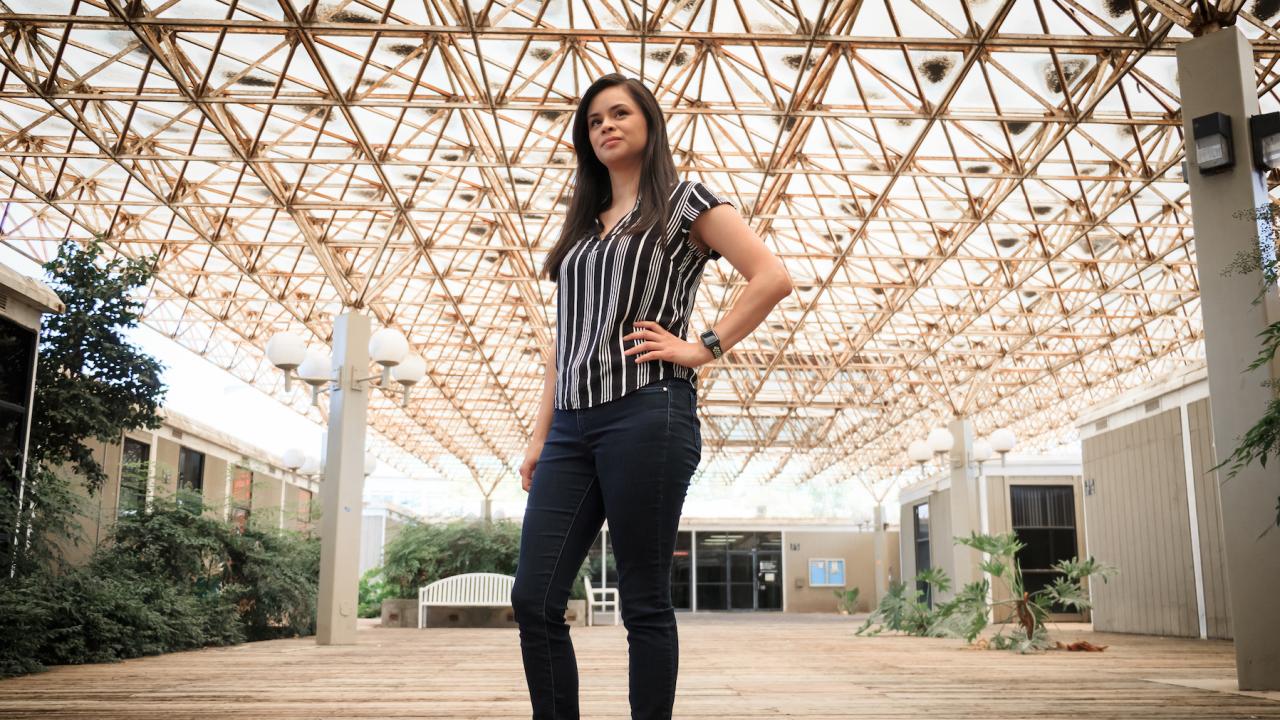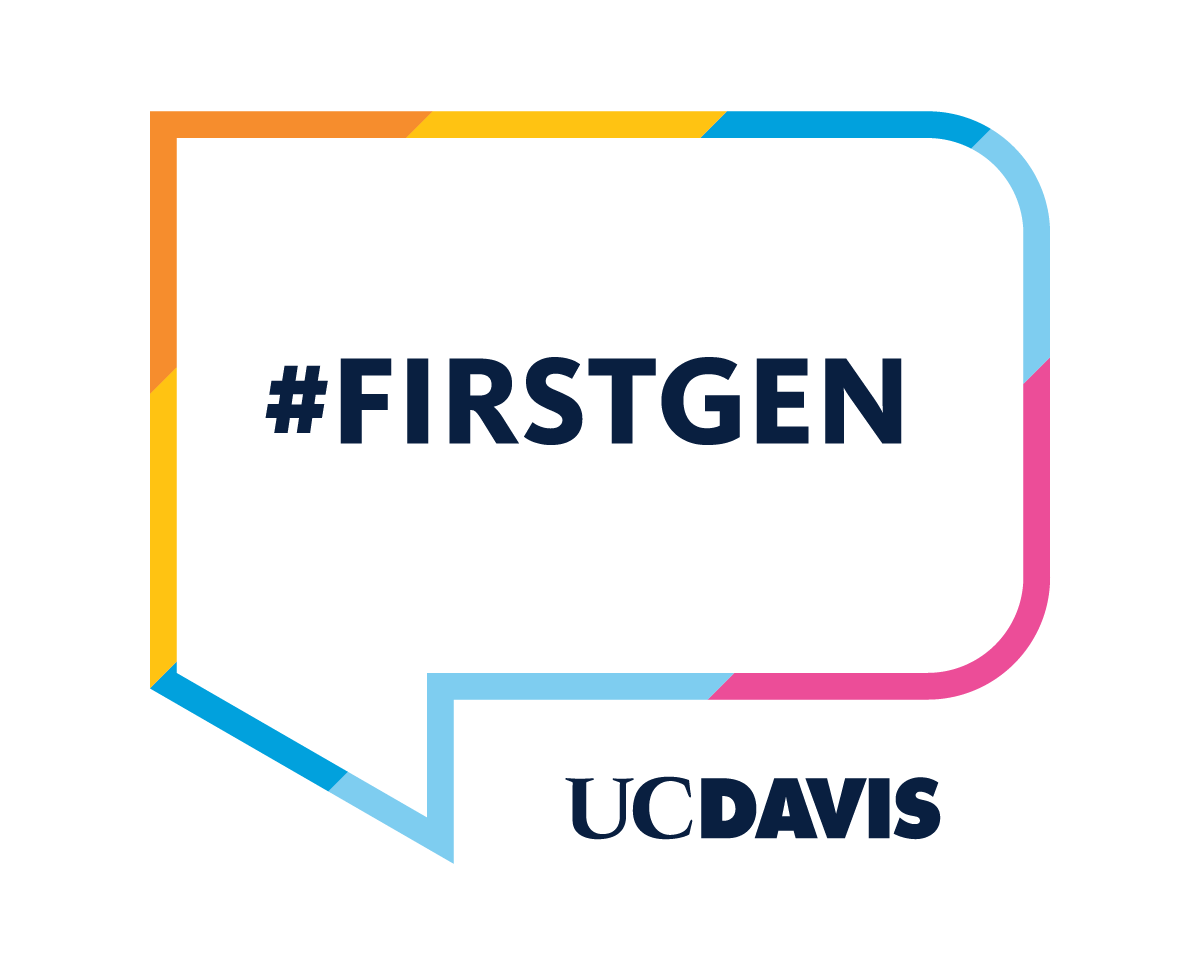
Setbacks are not a reason to give up - Leslie Olivares
Leslie Olivares
Center for Health and the Environment
I grew up in Pacoima, California, but my parents are immigrants from El Salvador. I was raised by a single mother who was dedicated to making sure my two siblings and I would have a good life. My story is common for Latinos who come from low-income areas. Hearing stories of educated people with my background was a huge help for me when I was struggling, and I hope my story will inspire someone who relates to my experiences to be resilient when college seems too challenging.
My mother instilled in me the importance of education at a very young age. She enjoyed school as a little girl, but was forced to leave in third grade to work in the fields and support her family. As a mother, she always made sure her children had what they needed and made sure I knew that with a college education came more opportunities for financial security, and for work that was not as labor intensive, like cleaning houses. From watching her struggles, I made a commitment to take advantage of the opportunities she sacrificed so much to give me.
My biggest fear was not doing well in my classes. Although I excelled academically in high school, I knew in college I would be surrounded by others who also excelled and I was not sure how prepared I was for this new level of competition. Another fear of mine was being away from my family. Me, my mother, my older brother, and younger sister were incredibly close, especially since we had faced many hardships together. This would be the first time one of us left home, and I knew it would be a difficult adjustment to be away from my primary support system.
Although I struggled tremendously, I have become much more confident in my academic abilities after understanding the best way I learn. Making friends with similar stories as mine also turned into a great support system that helped me cope with being away from home.
Anything relating to school I tended to handle on my own because my mother received a limited education. I did not have someone to help me with homework or give me advice about doing well in school and getting into college. This made me an independent person and I became good at problem solving new situations with little, or no, direction. My background also made me resilient. Even when I had doubts about graduating, I never stopped trying to figure out why I was struggling and, eventually, learned how to succeed.
As an undergraduate I was mentored by Dr. Donal Walsh, who has since passed away. He was involved with UC Davis Women's Rugby and I met him after joining the club. He frequently encouraged the team to seek out his help if we needed academic advice and always made himself available as a resource. He became one of my top sources for support and guidance once I worked up the courage to reach out to him. He loved mentoring students and I am grateful to have received advice by such a genuine and compassionate individual.
Another mentor was, and still is, Dr. Yvette Flores, who was my professor when I studied abroad. It was inspiring to meet such a strong, educated Latina and I was drawn to her because I wanted to be like her.
I could see she genuinely cares for students and wants them to succeed. She was the first person I reached out to when I was struggling and it was because of her that I was able to learn how to succeed. I do not believe I would have graduated without her guidance.
The best thing about my college experience was having the opportunity to study abroad in Oaxaca, Mexico and volunteer at Clínica Tepati, a UC Davis student-run free clinic. It was my first experience working with the Spanish-speaking community in a health setting and it solidified my passion for serving the Latino community, particularly in low-income settings similar to where I grew up.
The biggest lesson I learned is knowing when to ask for help. As the first in my family to go to college, I came to UC Davis with a very independent mentality that helped me succeed in some ways, but also hindered me in others. When I realized I could not do all things on my own, I dug too deep of a hole and was ashamed to show anyone. Taking that first step to talk to someone I trust made all of the difference in my ability to graduate with a Bachelor’s in Science. It’s embarrassing to talk about bad grades, but do not assume everyone else thinks you are not trying your best. And do not assume you are not strong because you can't do it on your own. A good mentor will try to help you and not judge.
I still work with the Latino community as a UC Davis staff member through the Western Center for Agricultural Health and Safety, where I have worked directly with farmworkers to improve occupational health and safety in the fields. I will soon pursue an MS in Nutrition Biology at graduate school. I plan to use the knowledge I gain to continue serving my community, and I hope to address some of the common health disparities they face, such as diabetes and hypertension.
